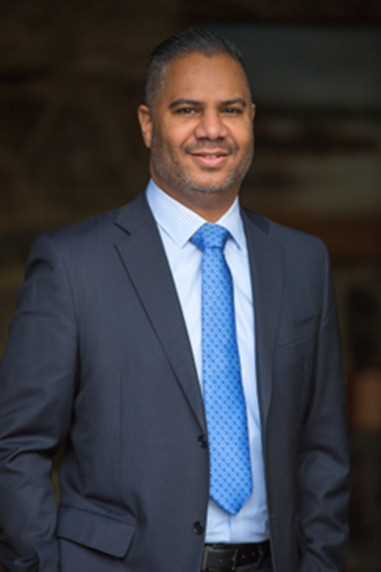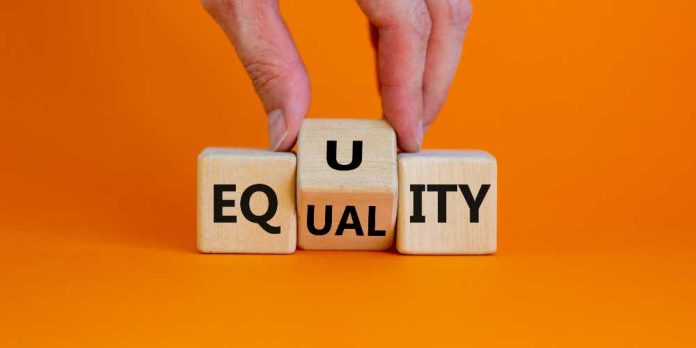Coming off the heels of IGT publishing its 16th annual Sustainability Report, SBC Americas had the opportunity to connect with Brian Blake, IGT’s Vice President of Diversity, Equity & Inclusion. After a successful tenure with the National Hockey League, Blake joined IGT in the spring of 2023 where he now runs the Company’s Office of Diversity, Equity and Inclusion.

SBCA: How has the transition been from the NHL to IGT?
Blake: The transition has been exciting and rewarding. Joining a company with the scale and geographic footprint of IGT requires a ramp-up period, but overall, I think the transition has been smooth. For the last five-plus years, IGT has been transparent and consistent, both internally and externally, about its commitments to and achievements in DEI, which provided me with solid foundation from which to start. The people, channels, and challenges are of course different between the two enterprises, but in many ways, the charters are similar. At IGT, our DEI mission is to create a fair and inclusive culture that values unity, difference, equity, and belonging in our people, players, customers, and communities. To that end, research has proven time and again, that companies that have greater diversity and an environment that values difference, boast higher performance, make better decisions, and overall, achieve higher employee satisfaction – these are business objectives that apply to all sectors.
SBCA: For the longest time, the focus was on diversity and inclusion. What do you think inspired the addition of equity into the equation?
Blake: Equity is a critical piece because it is about giving everyone the particular tools that they need to be successful. Most companies focus on diversity first. Let’s take gender diversity, for example. A company may set out to recruit and promote more women. Perhaps they’ll achieve that goal and then quickly implement inclusive practices and environments. Although those steps are integral to the process, they do not ensure that equitable policies and systems are in place that will propel these employees’ long-term success and help them unlock their full business potential. Equity is a vital ingredient. Equity means giving each person the unique things that they need to be successful. In the case of women, it can mean a wide variety of things that alleviate the historical and social disadvantages they have faced, such as inclusion learning experiences that help navigate bias, gender privilege, and micro-aggressions; leadership development programs; and mentorship and sponsorship initiatives that create avenues of upward growth. These are examples of actions that contribute to an equitable work environment. Gender is just one example, but equity touches all dimensions of diversity in the workplace. Compensation, cultural celebrations, time zone considerations, health benefits, accessibility, an environment of psychological safety – equity considerations are vast and dynamic.
SBCA: Across the industry, what do you see as some of the biggest opportunities for DEI growth?
Blake: When it comes to DEI, there is no endpoint. I view DEI as a journey of continuous improvement, not just for IGT, but for any company prioritizing DEI. In my experience, there are a few key things that unlock the full potential of a thriving DEI program. The first necessity is measurement. All companies have a starting point to their DEI journey. At IGT, we’ve found transparent benchmarking and measurement to be highly impactful tools to build trust and gauge progress. Second, I think it’s important for companies to create safe spaces for people to learn, ask questions and improve from mistakes. For IGT, part of our strategic DEI plan is to elevate employees’ “DEI IQ,” meaning they become more culturally fluent, adept at managing inclusivity, and recognizing the value in peoples’ differences. An ideal learning environment for this is one where people feel safe to be vulnerable, ask questions, and look within themselves to evaluate how they show up at work, how they treat others, and how they can support others to meet their unique needs. Third, collaboration with talent acquisition teams is a critical driver of DEI success. It would be challenging for a company to have a thriving DEI program if it cannot diversify its workforce, so a strong partnership with recruiting, with a focus on underrepresented talent and sourcing from “non-traditional” areas is critical to an increasingly diverse employee population.
SBCA: IGT recently released its 2022 Sustainability Report. How do your efforts tie into that body of work?
Blake: IGT’s 2022 Sustainability Report is a comprehensive document that details the actions, big and small, that IGT takes to protect its people and the planet. The report is organized by the four pillars that comprise IGT’s Sustainable Play™ initiative: Valuing and protecting our people, advancing responsibility, supporting our communities, and fostering sustainable operations. As you can imagine, IGT’s efforts, commitments, and achievement in the DEI realm are deeply tied to valuing and protecting our people. Within the value and protecting our people chapters, readers will find some of IGT’s key DEI achievements for 2022, as well as insights into how IGT engages its employees and provides safe and inclusive work environments. For example, for the first time in company history, IGT was included in the Human Rights Campaign Foundation’s Corporate Equality Index, which measures LGBTQ+ inclusion in the workplace. Similarly, in 2022, IGT was the first casino and gaming company to become a signatory for the UN Women’s Empowerment Principles (WEPs), a set of principles offering guidance to businesses on how to promote gender equality and women’s empowerment in the workplace, marketplace and community.
The entire report, as well as background on IGT’s DEI programs can be found on IGT.com.













